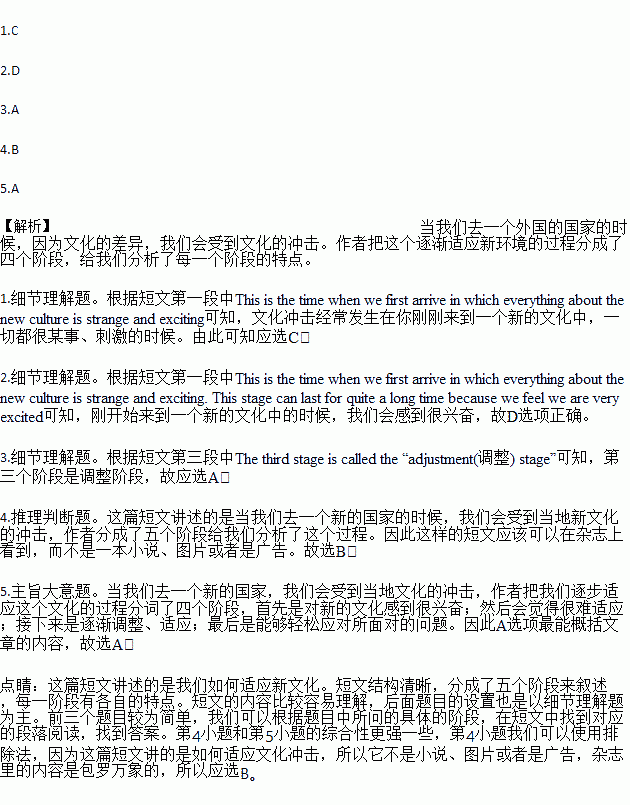题目内容
We may know that there are four basic stages (阶段) that human beings pass through when they enter and live in a new culture. This process is the way our brain and our personality react to(对……做出反应) the strange new things we meet with when we move from one culture to another.
Culture begins with the “honeymoon (蜜月) stage”. This is the time when we first arrive in which everything about the new culture is strange and exciting. This stage can last for quite a long time because we feel we are very excited.
Unluckily, the second stage can be more difficult. After we have got used to our new life, we can become very tired and begin to miss our homeland and our family, friends, pets.
The third stage is called the “adjustment(调整) stage”. This is when you begin to realize that things are not so bad in the host culture. You realize that you are becoming stronger by learning to take care of yourself in the new place.
The fourth stage can be called “at ease at last”. Now you feel quite comfortable in your new place. You can deal with most problems that you have.
There is a fifth stage of culture shock which many people don’t know about. This is called “reverse(逆向) culture shock(冲击)” . When you go back to your own culture, you find you have changed and things there have changed. Now you feel a little uncomfortable back home.
1.Culture shock usually happens when you ______.
A. are married B. move to a big city
C. go to live in a foreign culture D. meet foreign people in your country
2.How do you feel during the first stage of culture shock?
A. Lonely and sad. B. Bored and homesick.
C. Angry and impatient. D. Happy and excited.
3.How could the third stage be described?
A. Adjustment. B. Pulling away. C. Shock. D. Anger
4.Where can you probably find this passage?
A. In a novel. B. In a magazine. C. In a picture. D. In an ad.
5.What’s the main idea of the passage?
A. Man would pass through four basic stages when living in a new culture.
B. Entering and living in a new culture is challenging.
C. It is much fun to live in a new culture.
D. Life in a new culture is a struggle.
 每日10分钟口算心算速算天天练系列答案
每日10分钟口算心算速算天天练系列答案

